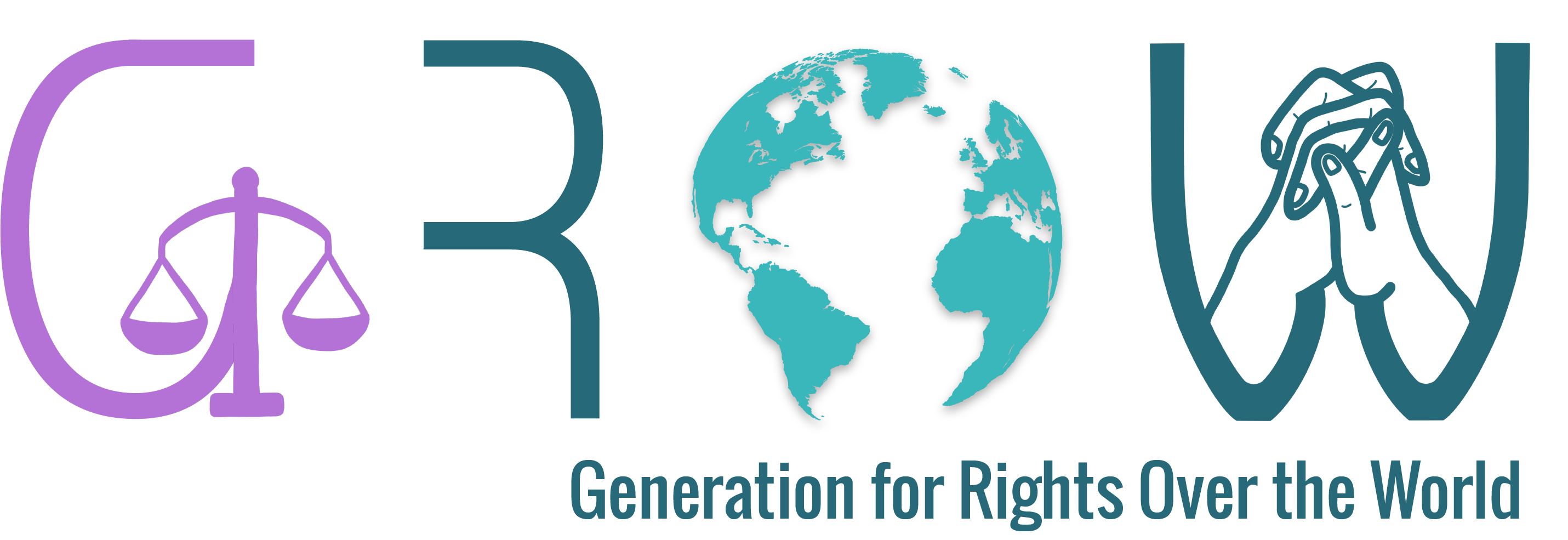Download PDF PDF Downloaden Descargar PDF
In January 2021, 15 countries will join the Human Rights Council and will sit on it until December 2023. On the occasion of the International Human Rights Day, GROW looks back at this institution and the consequences that the arrival of these new members could entail in terms of decision-making legitimacy and the future of this UN institution.
The UN Human Rights Council (HRC) is a fairly recent body created in 2006 to replace the Commission on Human Rights. Its main objective is to strengthen and promote human rights and ensure their protection throughout the world. Nevertheless, in recent months, the remarks against it have become increasingly virulent following the election of 15 new members. In particular, the elections of Russia and China have been heavily criticised for their many disrespectful human rights practices, raising questions about the authenticity and future of the HRC.
What is the Human Right Council?
A relatively new body
The Human Rights Council is an organ of the United Nations, created in 2006 under the impetus of Kofi Annan, the Secretary General of the United Nations at the time, to replace the UN Commission on Human Rights. It includes 47 members who “have the responsibility to strengthen the promotion and protection of human rights around the globe”1. Its headquarters are now located in Geneva and its secretariat is provided by the Office of the United Nations High Commissioner for Human Rights, which has been in existence since 1947.
Resolution 60/251, which created the Council, was adopted by UN Member States. It specifies the rules and duties that States, and members of the Council, must respect. It affirms and/or reaffirms the fundamental human rights that every State has a duty to protect:
“Reaffirming further that all human rights are universal, indivisible, interrelated, interdependent and mutually reinforcing, that all human rights must be treated in a fair and equal manner and that no distinction should be drawn between or among them and that no distinction should be drawn between or in favour of any human rights.”2
It also recalls that the Member States of the Council must respect “high human rights standards” such as freedom of expression, the right to fair justice or respect for all individuals without distinction as to gender, race or religion.
The Council has several subsidiary bodies and mechanisms that enable it to provide analysis and work towards the protection of human rights. In this regard, there are several working processes and procedures for the Council. Firstly, there is the Universal Periodic Review, through which the human rights situation in each State is assessed. Then there is the Advisory Committee, the Council’s think tank. States can address questions to it in order to obtain an opinion and recommendations from the committee. Finally, the complaint procedure gives organisations and individuals the opportunity to report to the Council on human rights violations. There are also special procedures, which were already present in the previous Commission. These procedures provide public reports focusing on human rights in targeted areas. They are composed of analyses, advice and sometimes monitoring results of worrying situations. These reports are drawn up by rapporteurs, special representatives and independent experts in working groups.
Forums also promote dialogue and interaction with populations to ensure relevant reporting on the best legal practice or practices in the world. They report the conclusions of their work once a year to the Council.
Despite a rather well-designed bureaucratic organisation, the resolutions adopted by the Council are non-binding, which considerably limits its scope of action.
The current composition
Member states of the HRC are elected for 3 years by absolute majority by the UN General Assembly, by secret ballot, and may not serve more than two consecutive terms. Before standing for election, a State must wait at least one year. All members are not renewed at the same time: every year about fifteen countries are elected at a session of the General Assembly in order to guarantee a minimum of continuity and stability in the institution.
Member States are distributed in such a way as to have an equitable composition : 13 seats for African States, 13 also for Asia-Pacific States, 8 for Latin American and Caribbean States, 7 for Western, Central and Northern European States, and finally 6 for Eastern European States.
The current members, until December 31st 2020, are Afghanistan, Angola, Australia, Chile, the Democratic Republic of the Congo, Mexico, Nepal, Nigeria, Pakistan, Peru, Qatar, Senegal, Slovakia, Spain and Ukraine. These 15 countries are therefore leaving the Council or have been re-elected (Mexico, Pakistan, Ukraine). Then Argentina, Austria, Bahamas, Bahrain, Bangladesh, Bulgaria, Burkina Faso, Cameroon, Czech Republic, Denmark, Eritrea, Fiji, India, Italy, Philippines, Somalia, Togo and Uruguay are members until December 31st 2021. And finally Armenia, Brazil, Germany, Indonesia, Japan, Libya, Marshall Islands, Mauritania, Namibia, Netherlands, Poland, Republic of Korea, Sudan and Venezuela are members until December 31st 2022.
The future members for the 2021-2023 term are Côte d’Ivoire, Gabon, Malawi, Senegal, China, Nepal, Pakistan, Russia, Ukraine, Uzbekistan, Bolivia, Cuba, Mexico, France and the United Kingdom.
Among the latter, some of them have seen their election strongly criticised, notably Cuba, China and Russia. As the Council has already received a great deal of criticism, this could suggest a major crisis in its legitimacy.
The uncertain future of the HRC: between criticism and concern
A crisis of legitimacy
The Council has always been the target of criticism, but it has increased in recent years, especially a few weeks after the election, or re-election, of some controversial countries such as China and Russia. These criticisms are all the more legitimate since the critics come from a wide variety of backgrounds: NGOs, Rice ambassadors, UN members, etc.
Resolution 60/251 commits states to respect the high human rights standards mentioned above. However, in view of the practices of China and Russia, it seems necessary to question their membership at the Council. These countries have major flaws in terms of their legitimacy to lead such an institution.
In this case, Russia, under the guise of a policy advocating a strong return to “family values”, is constantly reducing the rights of members of the LBGTQI+ community. President Putin, for example, campaigned to enshrine religion in the Constitution and to clarify that marriage would only be available to heterosexual couples. An advertising video from a government agency caused a scandal in early June, depicting the adoption of a little boy by a gay couple, and the reactions of individuals were very strong, as the last sentence of the video illustrates: “Is this the Russia you are going to choose ? Decide the destiny of our country : vote for constitutional reform”. The video has since been deleted by the agency, but it can still be found on the internet.
Regarding China, the country too has a very virulent past in terms of violations of the human rights of its people. The most contemporary example is the repression of the Uighur Muslim minority in the Xinjiang Autonomous Region in the far west of the country. For decades, the Uighurs, China’s Turkish Muslim minority, have been persecuted by the Chinese authorities. However, since 2014, the repression has turned into a policy of genocide and mass imprisonment. In the camps, Uighurs are subjected to a policy of Chinese cultural assimilation, women are forcibly sterilised and children are placed with Han families, the majority Chinese ethnic group, in an effort to eliminate cultural and religious diversity in the region. These acts continue to take place despite letters to the UN from Uighurs, human rights groups and 22 states3, mostly Western countries. At the 44th session of the Human Rights Council, 46 countries4 signed a letter in support of China. So what can we say about these countries, some of them Muslims, who support a country committing genocide against their peers?
Add to this the fact that China, Russia, Cuba, Pakistan, Uzbekistan and Mexico have been elected or re-elected even though they are among the countries with the lowest scores in the Reporters Without Borders press freedom index for 2020 (180 countries). China (177th) now has around 100 journalists in prison, Cuba (171st) and Russia (149th) control the media and the Internet and the few bloggers and independent journalists are under constant pressure. In Uzbekistan (156th) and Pakistan (145th) the media are monitored and censored as soon as the state is criticised and some journalists sometimes die because of their work. Finally, in Mexico (143rd), between criminal organisations and administrative and political authorities, journalists are censored, threatened, harassed or even killed depending on the subject under investigation.
However, these few states are not the only ones to be criticised. Many other members of the Council, or future members, still apply the death penalty, do not punish gender-based and sexual violence against women or any form of violence that may be inflicted on the LGBTQI+ community, do not respect the rights of migrants, and above all violate the very principles they ratified through the creation and membership of the Council. What respect is it possible to have for this Council, knowing moreover the high level of politicisation within it, deplored by Kofi Annan and already at the origin of the suppression of the previous Commission ? How can we trust these States, which are making arrangements between themselves to choose which countries are going to present their candidacies within the General Assembly itself? According to Louis Charbonneau, UN Director at Human Rights Watch5, there is no more election: “These non-competitive votes at the UN are a mockery of the term ‘election’”6. According to him, the list of candidates by region should be competitive, i.e. there should be more countries than places available, so that States have a choice to make. And if there is no choice, states should refuse to vote for countries unfit for office.
Furthermore, many States refuse to be proactive, delay signing decisions in the Council, and some even try to undermine many decisions and requests made by the Council. It is therefore criticizable that these States have been given seats while having violated human rights on one or more occasions.
France, for example, had received a lot of criticism after its previous mandate. Despite its title as the “cradle of human rights”, it does not really behave as a model to follow. Indeed, France was slow to sign certain declarations, thus putting them in jeopardy. It has also prevented the expression of multilateralism in the Council by adopting a strategy advocating a common voice for the European Union (EU), which has created tensions and slowdowns in the work of the Council, as not all EU countries have a uniform application of human rights. For example, Poland and Hungary are known to have committed violations of fundamental rights, preventing the EU from having a common policy and voice. Furthermore, France was called to order by the UN in early October 2020, regarding the “Global Security” law. The UN reminded France that “informing the public and publishing images and recordings of police interventions are not only essential for the respect of the right to information, but are also legitimate in the context of democratic control of public institutions”7. By passing this law, France is thus violating a fundamental right.
In the light of the numerous human rights violations committed by these countries, their election to the Human Rights Council is more than ever evidence of a crisis of legitimacy from which the institution is suffering. In this respect, its future and that of its future decisions are not only uncertain, but also of great concern.
A blurred and worrying future
It is essential to address the question of the future of the Council in terms of its current and future capacity to meet the objectives for which it was created.
In view of the numerous human rights violations by the members of the Council themselves, it is possible to ask whether the Council is not just a parody, a mirage of what it could have been, or should have been. Moreover, because of economic agreements and treaties, some States, especially those that need financial support and/or have only a small place on the international scene, do not dare to criticise other, more powerful States for fear of undermining these agreements.
It is encouraging, however, that China received far fewer votes than expected in the election of the new members of the Council, as did Russia. Indeed, despite its power, China received far less support than in 2016 (180 against 136 in 2020). As for Saudi Arabia, it was unable to enter the Council, which shows that some States are not totally indifferent. According to analysts such as Marc Limon8, the composition of the Council in 2021 will even be the best the Council has ever had, as more and more countries are deeply concerned about human rights and seek to protect them while being wary of countries committing violations. Thus, even though the composition is far from perfect, there is some hope. However, it will be necessary to wait and see the Council’s future actions and the end of 2021 before we can assess the implications that new members, mainly China, Russia or Cuba, might have.
Faced with the various violations committed by Council members and the strong criticism it receives, the future of the Council is therefore very uncertain. Its legitimacy is being questioned by many : NGOs such as Human Rights Watch and civil society organisations. Even states such as the United States, despite a questionable ability to supervise respect for human rights, have withdrawn from the Council pending reforms and claiming that the Council was hypocritical. Consequently, by being a member of the Council, states can water down recommendations that may be aimed at them, thereby undermining the work and progress that can be made to reduce rights abuses. The presence of these States, even on a temporary basis, coupled with the fact that the Council only produces non-binding recommendations, calls into question the relevance of the work, even the very existence of the Council and risks plunging it into a deep crisis of legitimacy.
In conclusion, after almost fifteen years of existence, criticism of the Council, combined with the results of the last elections, has partly proved its detractors right. Unfortunately, too many countries within the Council still violate human rights by failing to meet the expected criteria. The future of the Council is therefore in jeopardy, and the value of its word and its decisions can be questioned.
REFERENCES
Courrier International. (2020). Les autorités russes diffusent un clip de propagande contre l’adoption pour les couples gays. [online] Available at: https://www.courrierinternational.com/article/video-les-autorites-russes-diffusent-un-clip-de-propagande-contre-ladoption-pour-les-couples [Accessed Nov. 2020].
FR24 News. (2020). La Chine et la Russie rejoindront le Conseil de l’ONU. Les Etats-Unis devraient aussi. [online] Available at: https://www.fr24news.com/fr/a/2020/10/la-russie-et-la-chine-rejoindront-le-conseil-des-droits-de-lhomme-de-lonu-les-etats-unis-devraient-aussi.html [Accessed Nov. 2020].
HCDH. Who we are. [online] Available at: https://www.ohchr.org/FR/AboutUs/Pages/WhoWeAre.aspx [Accessed Nov. 2020].
Human Rights Watch. (2019). Joint statement Xijiang. [online] Available at: https://www.hrw.org/sites/default/files/supporting_resources/190708_joint_statement_xinjiang.pdf [Accessed Nov. 2020].
Human Rights Watch. (2020). UN : Deny rights council seats to major violators. [online] Available at: https://www.hrw.org/news/2020/10/08/un-deny-rights-council-seats-major-violators [Accessed Nov. 2020].
Human Right Watch. (2020). La France à la traîne au Conseil des droits de l’homme des Nations Unies. [online] Available at: https://www.hrw.org/fr/news/2020/10/08/la-france-la-traine-au-conseil-des-droits-de-lhomme-des-nations-unies [Accessed Nov. 2020].
Ligue des Droits de l’Homme. (2020). Loi sécurité globale: la France rappelée à l’ordre par l’ONU. [online] Available at: https://www.ldh-france.org/loi-securite-globale-la-france-rapellee-a-lordre-par-lonu/ [Accessed 29 Nov. 2020].
La Nouvelle Tribune. (2020). CDH de l’ONU: l’Arabie Saoudite écartée, la Chine et la Russie acceptées. [online] Available at: https://lanouvelletribune.info/2020/10/cdh-de-lonu-larabie-saoudite-ecarte-la-chine-et-la-russie-acceptes/ [Accessed Nov. 2020].
OHCHR. https://www.ohchr.org/FR/HRBodies/HRC/Pages/Home.aspx
OHCHR. (2006). Résolution 60/251. [online] Available at: https://documents-dds-ny.un.org/doc/UNDOC/GEN/N05/502/66/PDF/N0550266.pdf?OpenElement [Accessed Nov. 2020].
ONU Info. (2020). L’assemblée Générale élit 15 nouveaux membres au Conseil des droits de l’Homme. [online] Available at: https://news.un.org/fr/story/2020/10/1079792 [Accessed Nov. 2020].
RSF. (2020). De nouveaux prédateurs de la liberté de la presse élus au Conseil des droits de l’homme de l’ONU. [online] Available at: https://rsf.org/fr/actualites/de-nouveaux-predateurs-de-la-liberte-de-la-presse-elus-au-conseil-des-droits-de-lhomme-de-lonu [Accessed Nov. 2020].
RTL. (2020). Chine: 5 questions sur les persécutions des Ouïghours. [online] Available at: https://www.rtl.fr/actu/international/chine-5-questions-sur-les-persecutions-des-ouighours-7800683967 [Accessed Nov. 2020].
The Diplomat. (2020). 2020 Edition: Which Countries are for or against China’s Xinjiang policies. [online] Available at: https://thediplomat.com/2020/10/2020-edition-which-countries-are-for-or-against-chinas-xinjiang-policies/ [Accessed Nov. 2020].
To quote the article:
DELHAY, J. (2020). The Human Right Council: in a crisis of legitimacy? Generation for Rights Over the World. growthinktank.org. [online] Dec. 2020.
| ↑1 | HRC. [online] Available at: https://www.ohchr.org/FR/HRBodies/HRC/Pages/Home.aspx [Accessed November 2020]. |
|---|---|
| ↑2 | HRC, (2006). Resolution 60/251. [online] Available at: https://documents-dds-ny.un.org/doc/UNDOC/GEN/N05/502/66/PDF/N0550266.pdf?OpenElement [Accessed November 2020]. |
| ↑3 | Japan, Australia, United Kingdom, Denmark, Netherlands, New Zealand, Switzerland, Norway, France, Belgium, Canada, Estonia, Finland, Germany, Iceland, Latvia, Lithuania, Luxembourg, Sweden, Austria, Ireland, Spain. |
| ↑4 | Saudi Arabia, Russia, North Korea, China, Iran, Syria, Burma, Pakistan, Bahrain, Belarus, Burundi, Cambodia, Cameroon, Central African Republic, Comoros, Congo, Cuba, Djibouti, Egypt, Equatorial Guinea, Eritrea, Yemen, Guinea, Guinea Bissau, Iraq, Laos, Lesotho, Mozambique, Nepal, Nicaragua, Niger, Oman, Palestine, Papua New Guinea, Philippines, Serbia, Solomon Islands, South Sudan, Sri Lanka, Sudan, Suriname, Togo, United Arab Emirates, Venezuela, Zambia, Zimbabwe. |
| ↑5 | Human Rights Watch is an international non-governmental organisation whose aim is to defend human rights and the Universal Declaration of Human Rights. It publishes an annual report on the human rights situation in the world and numerous surveys on more specific issues. |
| ↑6 | FR24News. (2020). La Chine et la Russie rejoindront le Conseil de l’ONU. Les Etats-Unis devraient aussi. [online] Available at: https://www.fr24news.com/fr/a/2020/10/la-russie-et-la-chine-rejoindront-le-conseil-des-droits-de-lhomme-de-lonu-les-etats-unis-devraient-aussi.html [Accessed November 2020]. |
| ↑7 | LDH. (2020). Loi Sécurité globale: la France rappelée à l’ordre par l’ONU. [online] Available at: https://www.ldh-france.org/loi-securite-globale-la-france-rapellee-a-lordre-par-lonu/ [Accessed Nov 2020]. |
| ↑8 | Marc Limon, former HRC diplomat (2006-2012), now Executive Director of the Universal Rights Group in Geneva. |







